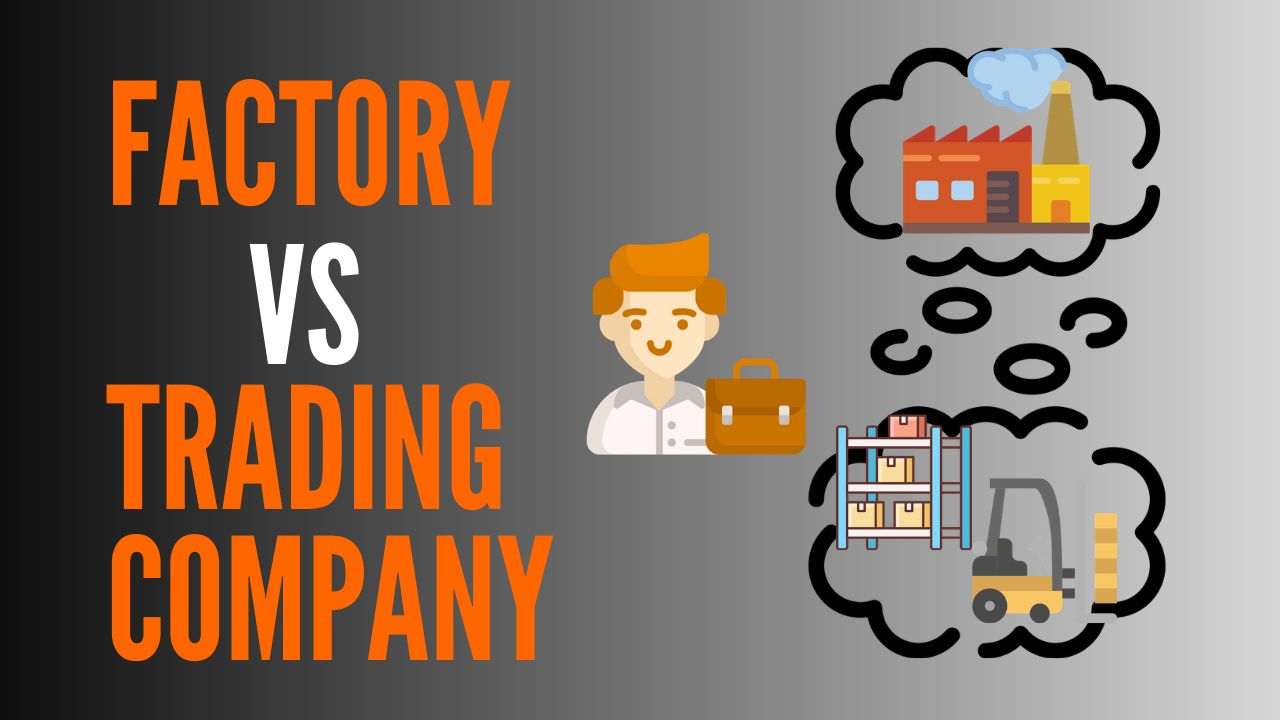Do you wish to source or contract directly with a factory to produce your goods through a trading company?
Ever found yourself wondering, what is a trading firm? A trading firm, also referred to as a vendor, acts as an intermediary that links consumers and businesses without any interference in the possession or development of the product offered for sale. And you may discover that several of the sites registered are not actually the factories producing the goods displayed while searching on websites such as Alibaba and Global Sources.
Most of these are trading firms, several of which are associated with a single supplier including those that work with several factories. So far as price and performance reach standards, whether they are working with a trading firm or a retailer, many consumers really do not mind. In reality, many customers profit from engaging with a trading company rather than personally dealing with a plant.
So, is there a characteristic that distinguishes a trading firm upon first sight from a factory? The fact is, being 100 percent confident could be challenging. You will, though, get a good clue when using these four benchmarks from a trading firm to differentiate them from one or the other.
1. Variety of Products
Does the business sell multiple product types that demand different methods of production? For example, say there is a company named “Tennis Manufacturing Company.” If this company sells tennis rackets, running shoes, and sports bags, then they are definitely not a manufacturing business. If this company provides tennis rackets, running shoes, and sports bags, it would not be a manufacturing company.
Manufacturers in China, in most cases, will focus very specifically on one product type or production process. This is owing to the huge price of machines needed for different types of parts to be manufactured. As such, as these products require entirely separate production methods, a company that makes tennis balls would usually not produce backpacks and footwear.
2. The Name of the Company
Trading firms prefer to have names of their companies that are much catchier and more bankable than individual suppliers. The explanation seems to be that their organization aims to gain foreign buyers, while producers typically concentrate on manufacturing goods. In an attempt to acquire a wider customer base, trading firms ought to be somewhat marketable.
Manufacturers also usually use their company name as the name of the city or town in which they are situated. For instance, “Shanghai Plastic Products Manufacturer” may be considered a business that manufactures chairs or buckets in Shanghai. However, such a name might not appear quite enticing to international investors, would it?
Manufacturers also usually use their company name as the name of the city or town in which they are situated. For instance, “Shanghai Plastic Products Manufacturer” may be considered a business that manufactures chairs or buckets in Shanghai. However, such a name might not appear quite enticing to international investors, would it? However, a trading firm would very likely have a much more eye-catchy name, such as “Personal Care products Technology Company,” in order to come across as a maker. Very seldom in China does a plant get a label like that.
3. The Location of the Company
Where is the agency situated? Type their address on Google Maps to see if this is in the center of cities such as Hong Kong, Shanghai, Shenzhen, or another crowded urban city. If they are located in a commercial district, it may not be the production venue, most likely. However, that doesn’t literally mean that they’re not the real production firm – there are distribution offices located in the city for several big companies. However more frequently, a slight inquiry into the real place of production shows that perhaps the office is not connected to the business making the items.
4. The Company’s Website
You should notice if the company’s website is attractive and convenient to operate? Is the entire thing in English? If that is so, it is most definitely that you are interacting with a trading company. If that is so, how and when to distinguish a trading company from a factory? The market webpage is typically the main predictor, except if there is a massive and well-reputed manufacturer.
so, With almost no English and a bad interface, several of the biggest factories in China have very simplistic internet sites. For many of these factories, it is actually not a primary goal to create an enticing platform. The absence of good promotional campaigns from Chinese factories themselves is a major factor why China has swept over trading firms.
Conclusion:
If you prefer to maintain contact directly with the producer or want nothing whatsoever to do with it. You will be steered in the desired direction by these four indicators. In order to buy cheap commodities overseas, exporting firms provide customers with a wide variety of products. However, they are also not a choice for consumers looking at more technical aspects of the design of their product.
Whenever you find yourself experiencing difficulties determining between a producer and a trading company, ask yourself the following questions:
- Are they selling a diversified range of items?
- Is the name of the company enticing and marketable, or bland?
- Where are they situated?
- Is the web presence particularly consumer-friendly?
From now on if you’re producing in China, aim for these four indications to better determine whether your goods are actually made by the company you’ve just started working with.


